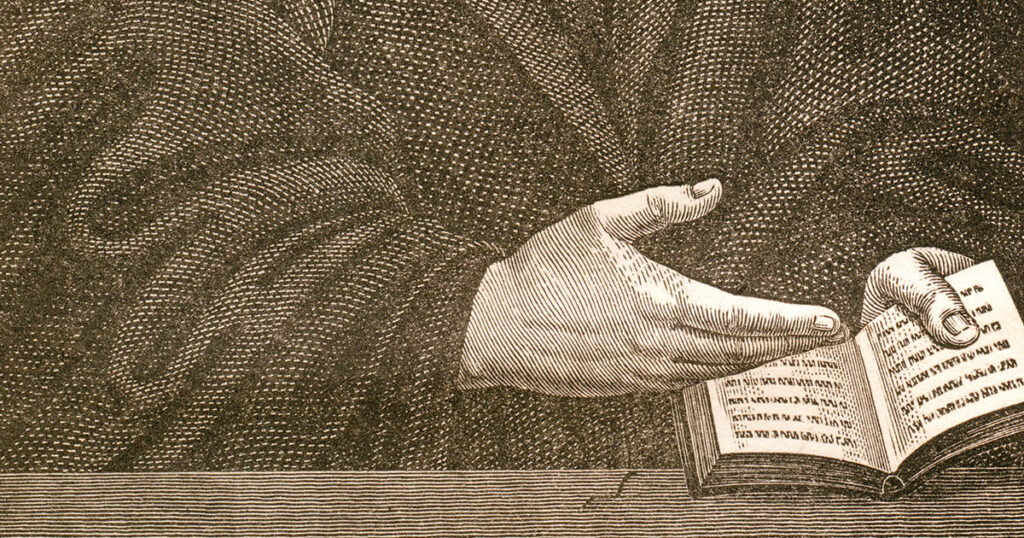Part 1 of a discussion on Martin Luther’s “The Freedom of a Christian”
This year marks the 500th anniversary of three of Luther’s foundational writings: “To the Christian Nobility of the German Nation,” “The Babylonian Captivity of the Church” and “The Freedom of a Christian.” In “The Freedom of a Christian,” Luther lays out the central Reformation assertion that faith in Christ and not works of the law justifies sinful human beings in the sight of God. In 1520 when the essay was written, Luther had not yet been excommunicated. He dedicates the tract to Pope Leo X with an appeal that is both pastoral and polemical. The Reformer shows concern for Leo’s spiritual welfare while criticizing false teachings that rob Christ of the honor due to Him alone as Savior and deprive broken sinners of consolation that alone soothes their terrified consciences.
Luther wrote the dedicatory letter to Pope Leo in polished Renaissance Latin making a careful and nuanced appeal to the pontiff for due consideration of Luther’s confession of the Gospel. He addresses Leo as a “most blessed father” (474)* who had to endure incompetent and dangerous advisors so that Leo sits as a lamb among lions, just “as Daniel in the midst of lions, and you dwell with Ezekiel among the scorpions” (478). Luther expresses empathy for Pope Leo even as he implores Leo to give a fair hearing for the Gospel that Luther puts forward in the tract.
Subject to none; subject to all
In “The Freedom of a Christian,” Luther takes faith as the starting point. Faith is not a human virtue or power but the Spirit-worked trust in Christ’s promise lived out by the believer under tribulation and trial. The existence of the Christian is constituted by faith alone. This means the Christian lives paradoxically as one who is both free and in servitude:
“The Christian individual is a completely free lord of all, subject to none.
p. 488
The Christian individual is a completely dutiful servant of all, subject to all.”
While these two statements appear contradictory, they actually agree. They are derived from Holy Scripture. Luther appeals to 1 Corinthians 9:19, “For though I am free from all, I have made myself a servant to all, that I might win more of them,” and Romans 13:8, “Owe no one anything, except to love each other, for the one who loves another has fulfilled the law.”
Luther maintained that just as Christ Jesus is true God, He is also true man. He is Lord of all and yet, He became a servant for us (Phil. 2:5–11), just so, the Christian has two natures. Yet in the Christian, these two natures are opposed to one another. Luther refers to the inner person (the new, spiritual being) and the outer person (the old, fleshly sinful being). There is a fight going on: “For the desires of the flesh are against the Spirit, and the desires of the Spirit are against the flesh, for these are opposed to each other, to keep you from doing the things you want to do” (Gal. 5:17). Christian freedom does not consist in submission to fleshy aspirations, for that would be slavery ending in death. The freedom of the Christian is not found in bondage to the old nature which is decaying, wasting away (2 Cor. 4:16), but is given only in Christ whose blood sets us free from sin, death and the devil.
Not external freedom
Christian freedom is not an external thing at all. Externally, Luther noted, the body may be active, enjoying food and drink and doing what it pleases while being enslaved completely to sin. On the other hand, the body might be plagued with chronic illness and physical affliction, lack food and drink, or suffer imprisonment, and yet the soul remains free in Christ. Likewise, the body does not benefit spiritually from outward performance of pious works:
Thus it does not help the soul if the body wears sacred robes set apart for priests or enters sacred places or performs sacred duties or prays, fasts, abstains from certain foods, or does absolutely any work connected with the body. Righteousness and freedom of the soul will require something completely different since the things just mentioned could easily be done by some ungodly person and since such efforts result only in producing hypocrites. On the other side, the soul is not harmed if the body wears street clothes, goes around in secular places, eats and drinks like everyone else, does not pray aloud, and fails to do all the things mentioned above that hypocrites could do. (490)
The false belief that good works establish a righteous relationship to God can only lead to hypocrisy or despair, both of which enslave the soul.
One necessary thing
The one necessary thing for Christian freedom is the liberating Word of Christ, the Gospel. Human works, though outwardly righteous, can never substitute for Christ. Luther cited numerous biblical texts to demonstrate this point: “[Jesus is] the resurrection and the life. Whoever believes in [Him], though he die, yet shall he live” (John 11:25). “If the Son sets you free, you will be free indeed” (John 8:36). “Man shall not live by bread alone, but by every word that comes from the mouth of God” (Matt. 4:4). The Christian may live without anything else except the Gospel, because it is “the word of life, truth, light, peace, righteousness, salvation, joy, freedom, wisdom, power, grace, glory, and every imaginable blessing” (491). No wonder Luther then refers to Psalm 119, noting how the Christian, like David of old, sighs and yearns for God’s Word.
This brings Luther to the point where he puts his finger on the disaster that necessitated the Reformation: a famine of hearing the Word of the Lord (Amos 8:11). God sent His Son, the Word made flesh into the world not to condemn the world but to bring salvation through His death and resurrection. God sends forth His Word to bring healing and deliverance from destruction (Psalm 107:20). “And Christ was not sent into the world for any other office than the word” (491). Christ was not sent as a teacher of morality or a new Moses, but as the One who rescues sinners by His death and gives them life in His resurrection. Whether apostles, bishops or clerics, Luther firmly insisted that these offices and orders exist only for the ministry of the Word. Those in the preaching office are not to bind consciences with human regulations but set them free with the divine Word authorized by the crucified and risen Lord Himself. The preacher does not sniff out secret sins like an ecclesiastical detective or an enforcer of civil righteousness, but proclaims forgiveness as a literal “evangelist” who comes with the Word of life, the Gospel of the forgiveness of sins. Preachers proclaim this unfettered message not to imprison but to unlock the chains that bind, to set the captives free.
The task of preaching is to declare the glad news of God, namely that He sent His Son into flesh to suffer, die and rise from the dead, and is now glorified as Lord. “To preach Christ,” Luther wrote “means to feed, justify, free, and save the soul—provided a person believes the preaching” (491). Preaching uses God’s efficacious Word to create and sustain faith wherein there is the freedom for which Christ has set us free. Such freedom is given only through faith in the Savior.
Next time: Part 2 How does Faith Give Freedom?
* All citations are taken from “The Freedom of a Christian” translated by Timothy J. Wengert in The Annotated Luther, Vol. I: The Roots of the Reformation (Minneapolis: Fortress Press, 2015), 467–538.






Luther pointed out the distinction of Moses and Christ here. The law of morals first originated through Moses when God gave him the old covenant commandments. Jesus simply reiterated or rehashed it when talking about morality. On the other hand Jesus came to do something far different and greater by fulfilling the law ie his perfect life, death and resurrection to our benefit. As John said “the law came by Moses but grace and truth came through Jesus Christ.” John 1:17
Right on. It’s what I preach.
The author says, “Christ was not sent as a teacher of morality….”
Some clarification might be helpful: Jesus did teach for some time before he went to the cross. He taught not only about who he was and the meaning of his ultimate sacrifice; he also taught many things about what new life in him entails with respect to our aspirations and attitudes and behavior, pointing with great love to the potential for our blessedness, fruitfulness, and joy, to God’s glory.
“If you know these things, blessed are you if you do them.” – John 13:17 ESV
“By this my Father is glorified, that you bear much fruit and so prove to be my disciples.” – John 15:8 ESV
“These things I have spoken to you, that my joy may be in you, and that your joy may be full.” – John 15:11 ESV